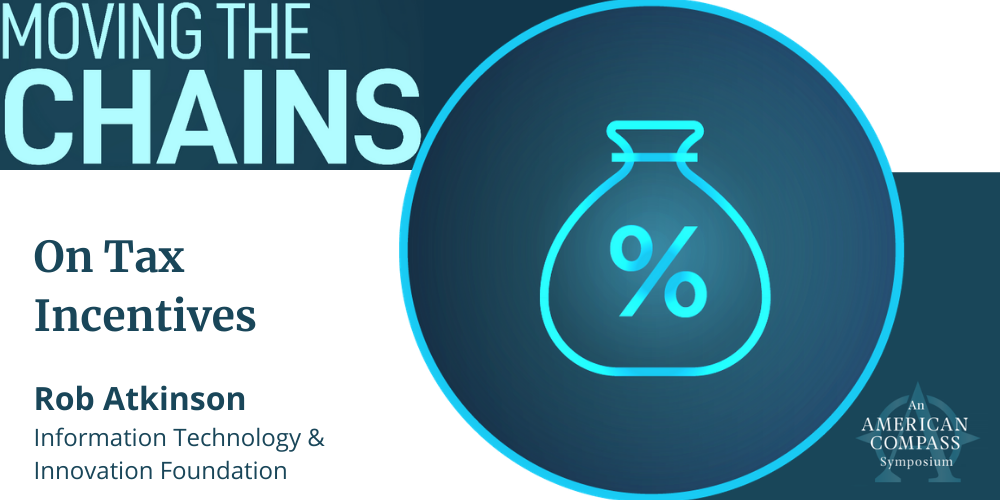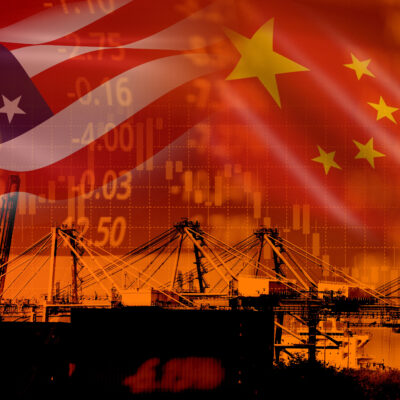
RECOMMENDED READING
Reshoring supply chains is a critical task, and there is an endless number of policy levers at our disposal to do so. But the key philosophical change that policymakers must make is to rethink our relationship between the state and the corporation. For too long, the American state has been the junior partner, seeking to find non-coercive ways to encourage corporate actors to act on behalf of the national interest. The result is decay, ineptitude, and historically low productivity growth. Meanwhile, the Chinese state, run by strategists with no such naive views about corporations, governs aggressively on behalf of its national interests.
With that in mind, I’d like to comment on Rob Atkinson’s essay on the need for tax incentives for innovation. In it, he suggests that the American government match the Chinese government in its large-scale subsidization of research activity. We can debate the right way to design a tax code to help innovation, and there is critical work to be done on tax incentives to end offshoring. We would also be wise to remember that the American technology industry grew because the U.S. government was a large and important customer in the 1950s and 1960s. That said, the historic reason American firms innovated is not because the government provided them with resources, but because they were forced to do so by antitrust enforcement.
As scholars have recently observed, the large research labs of the 20th century were a function of aggressive anti-merger rules. Historically, many large labs were set up partly because antitrust pressures constrained large firms’ ability to grow through mergers and acquisitions. In the 1930s, if a leading firm wanted to grow, it needed to develop new markets. With growth through mergers and acquisitions constrained by antitrust pressures, and with little on offer from universities and independent inventors, it often had no choice but to invest in internal R&D. The more relaxed antitrust environment of the 1980s, however, changed this status quo. Growth through acquisitions became a more viable alternative to internal research, and hence the need to invest in internal R&D was reduced.
Today, corporations do not have to innovate because the public policy framework we’ve developed lets them avoid doing so. Scholars also note that more aggressive intellectual property protection laws also led to a decline in R&D; why invent if you can invest in lawyers to block your competitors from doing so?
Nearly every time that a pharmaceutical corporation buys a competitor, it lays off the scientists and focuses on generating cash from existing patents. Such non-productive financial engineering was originally pioneered by Jack Welch, who slashed General Electric’s research capacity because he understood that the post-1981 antitrust framework meant that market power, not quality products, was what mattered. This is not to say that mergers are never useful; there is some utility from scaling production. But we have gone way too far. It is increasingly evident at this point that American brilliance focuses on financial engineering rather than actual engineering.
Fundamentally, Atkinson and I agree that the way to change corporate behavior is to change the way that corporations make money. But puncturing new loopholes in the tax code is not going to lead to anything except more tax lawyers, unless we change our market structure to force innovation in the first place. Changes to tax laws may help, depending on the details, but what we really need are market rules, such as assertive antitrust and laxer intellectual property laws, that force corporations to compete by inventing things.
Recommended Reading
Critics Corner: Tax Foundation’s Erica York on Tariffs
On this episode of Critics Corner, Tax Foundation senior economist Erica York joins Oren Cass for a conversation about tariffs: who bears the cost, who benefits, and much more. Further Read more…
On Tax Incentives
A tax credit for domestic investment is the best way to reduce production costs.
Halting Investment in China
Oren Cass discusses why America must disentangle from China to protect its market from subversion by the CCP.













